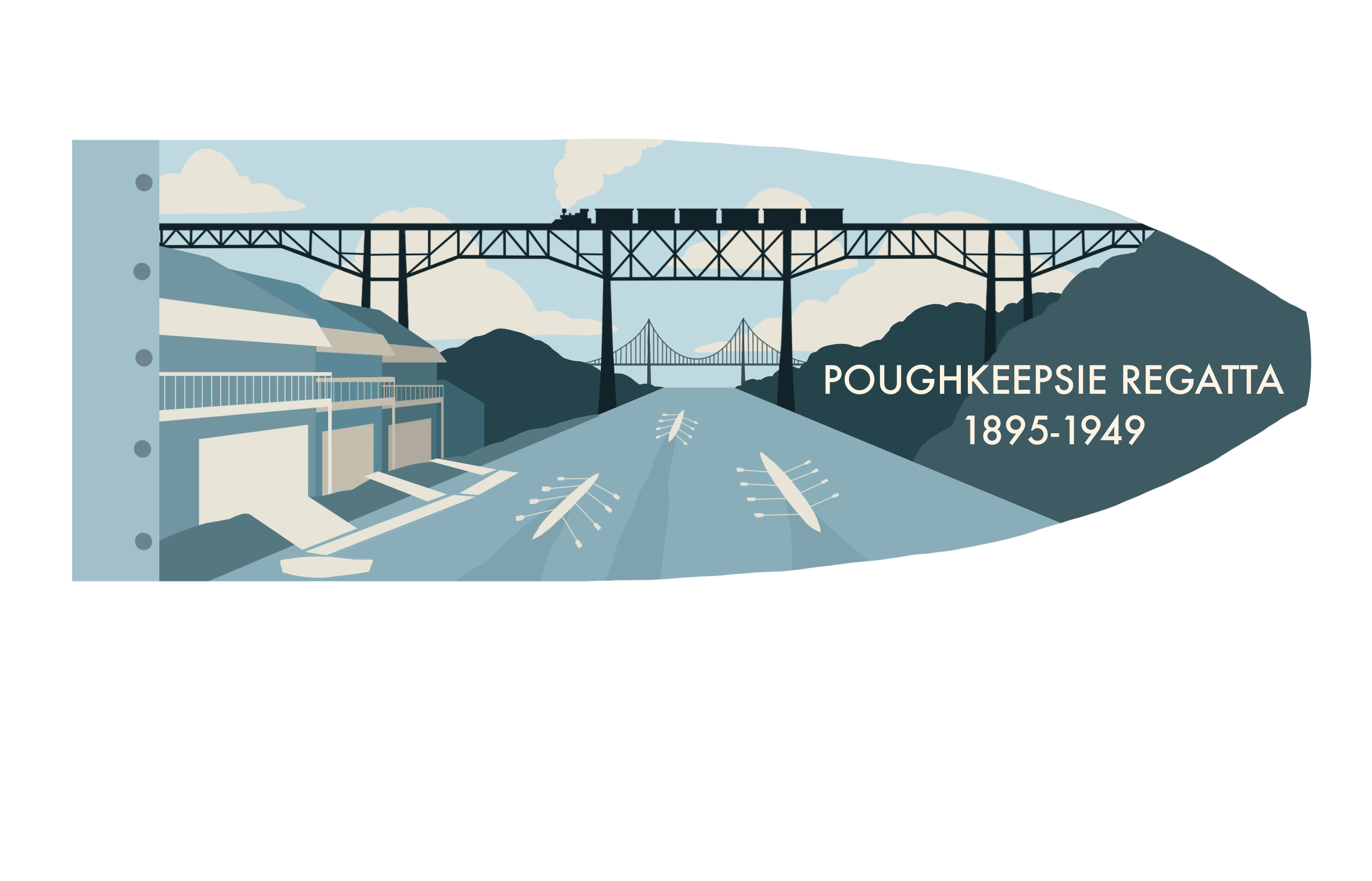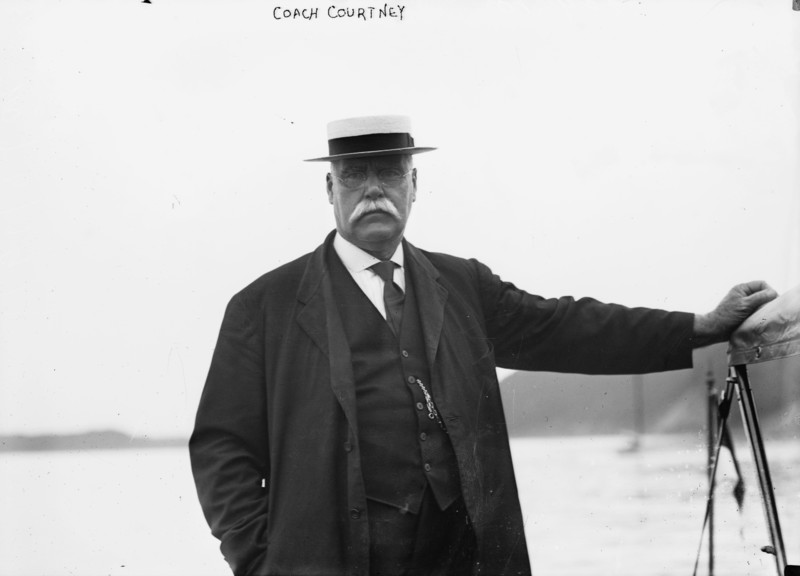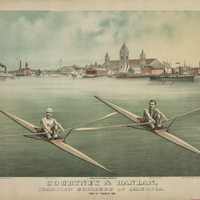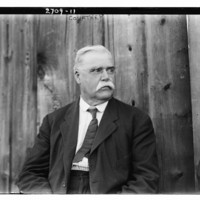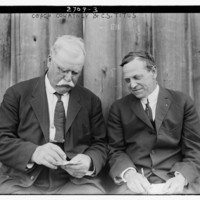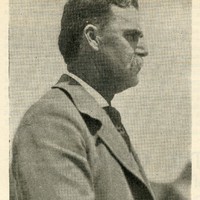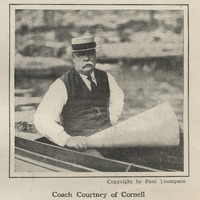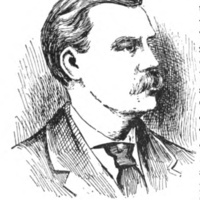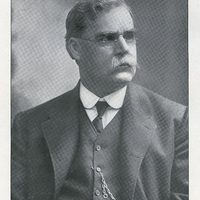Charles E. "Pop" Courtney
Cornell's Crew Coach 1884-1920
A carpenter by trade originally, Courtney became an amateur rower in 1860 when he raced in a canoe built by himself and a friend. He gradually began competing in more and more races as an amateur, eventually rowing at Saratoga in 1873 where he beat a time held by professional rower, Josh Ward of the famous Ward brothers.
Courtney was undefeated as an amateur, winning a total of 88 victories in single and double scull races. He continued to row as an amateur until 1877 when he began competing as a professional rower. He won his first competition, but would face his first loss in 1878 to fellow, future crew coach, Edward "Ned" Hanlan, one of the best professional rowers at this time. The men became rivals as a result of this or at least that's how the press depicted it. Courtney would go on to lose to Hanlan several more times.
Courtney retired from rowing in 1883 and was hired by Cornell to coach the Varsity 4. Cornell continued to employ him after the Varsity 4's victory and he became head coach of the Cornell crews in 1889. This proved to be a wise decision as Cornell won 14 Intercollegiate Rowing Association Championships with Courtney as coach and using the "Courtney Stroke."
Prior to the start of the IRA, Courtney had continually tried to have his crews compete against Harvard and Yale, but was rebuffed. Courtney instead put together a crew to compete in the Henley races in 1895. A separate crew was sent to Poughkeepsie to compete in the IRA regatta.
Courtney himself was strict about diet and routine for his rowers and there were several stories that made the rounds about his dietary requirements for his crews. But while strict about training, he looked out for their welfare and was one of the earliest proponents for reducing the varsity race to 3 miles from 4 out of concern for his oarsmen.
Courtney would not have a chance to retire from coaching as he did from rowing. In 1916 on the way to Poughkeepsie, Courtney fractured his skull due to the train stopping abruptly. This injury did not prevent Courtney from coaching the crews, but he would not see them race as he was confined to bed. Speculation at this time was that Courtney would retire since it was the last year of his contract, but while he did have to take a break from coaching, he returned in 1918 when rowing resumed at Cornell after it was suspended in 1917 due to World War I.
When the IRA revived its regatta in 1920 at Cayuga Lake, Courtney coached the junior varsity and freshman to victory. Less than a month later, Courtney died as a result of a stroke or cerebral brain hemorrhage.
Charles E. "Pop" Courtney had a huge impact on the world of rowing and Cornell's rowing program. He was inducted into Cornell Hall of Fame in 1978.
Sources about Courtney:
"Courtney and Hanlan." Harper's Weekly, October 12, 1878.
"Pop Courtney, From Village Carpenter to Dean of American Rowing." Literary Digest, September 18, 1920.
Cornell University: A History by Waterman Thomas Hewett
The Rise of Cornell Rowing, 1871-1920 by Eric R. Langstedt
Courtney: Master Oarsman, Champion Coach by Margaret K. Look
Charles E. Courtney entry in Wikipedia
The Cornell Navy by Charles Van Patten Young
Courtney and Cornell Rowing by Charles Van Patten Young
